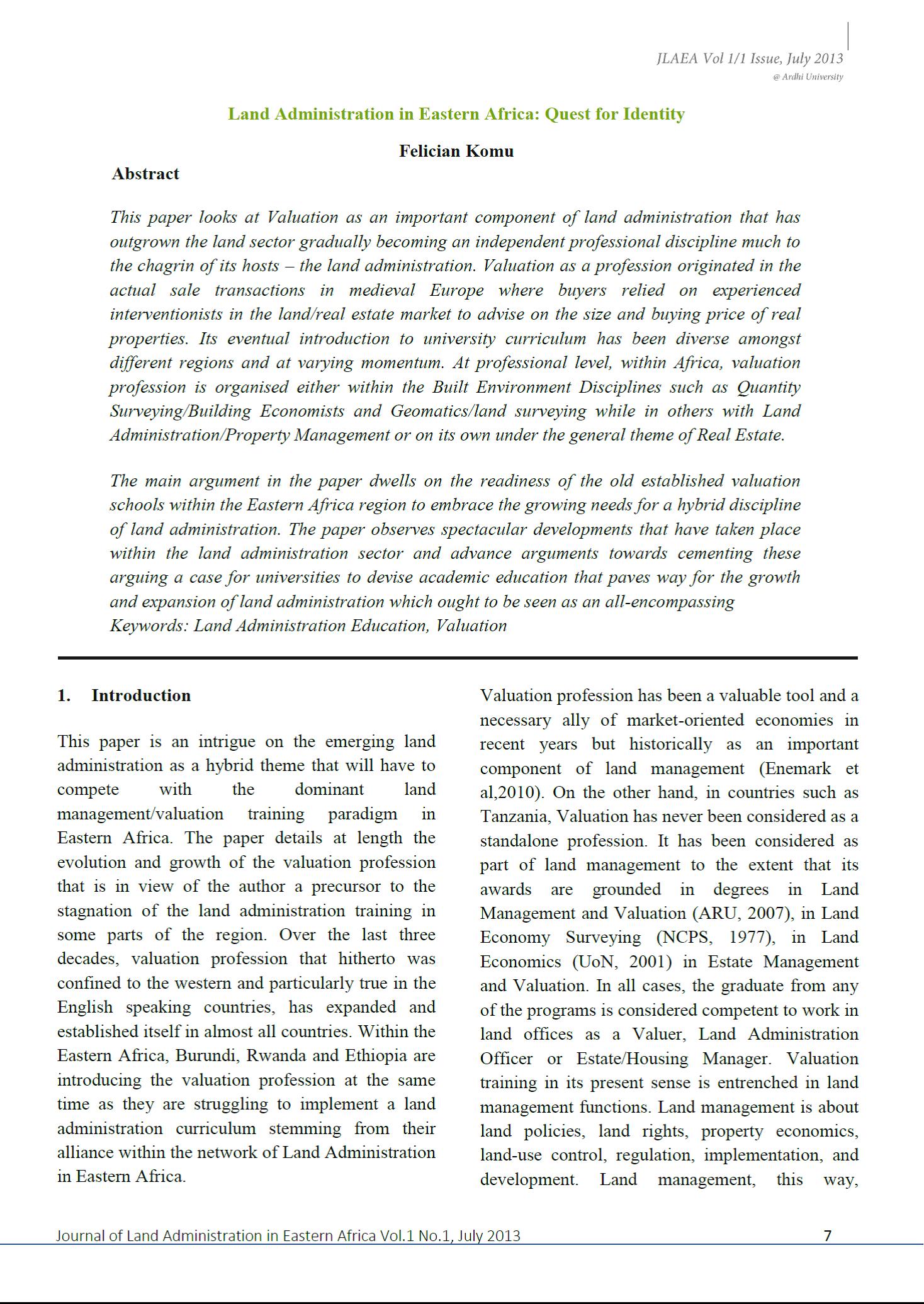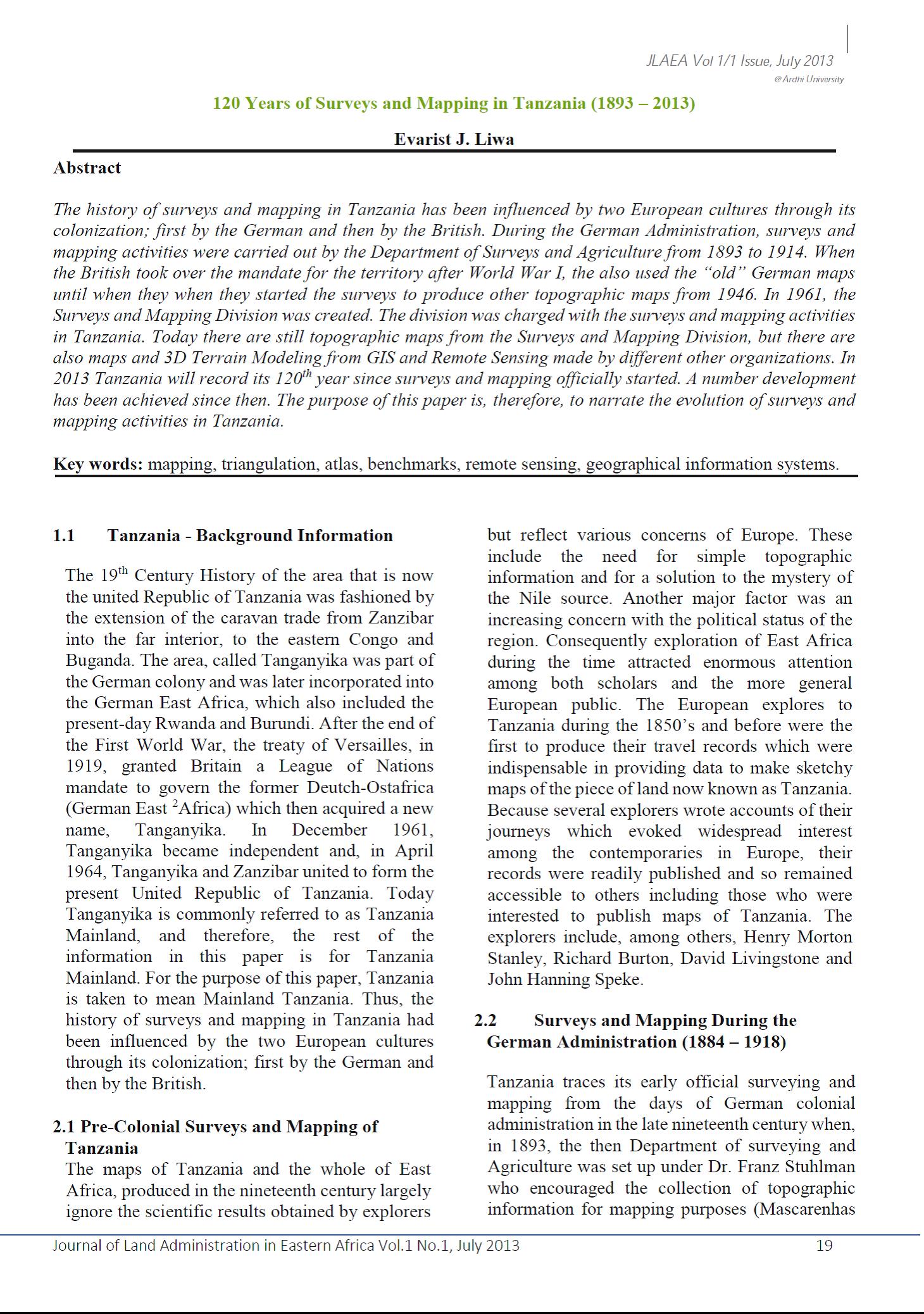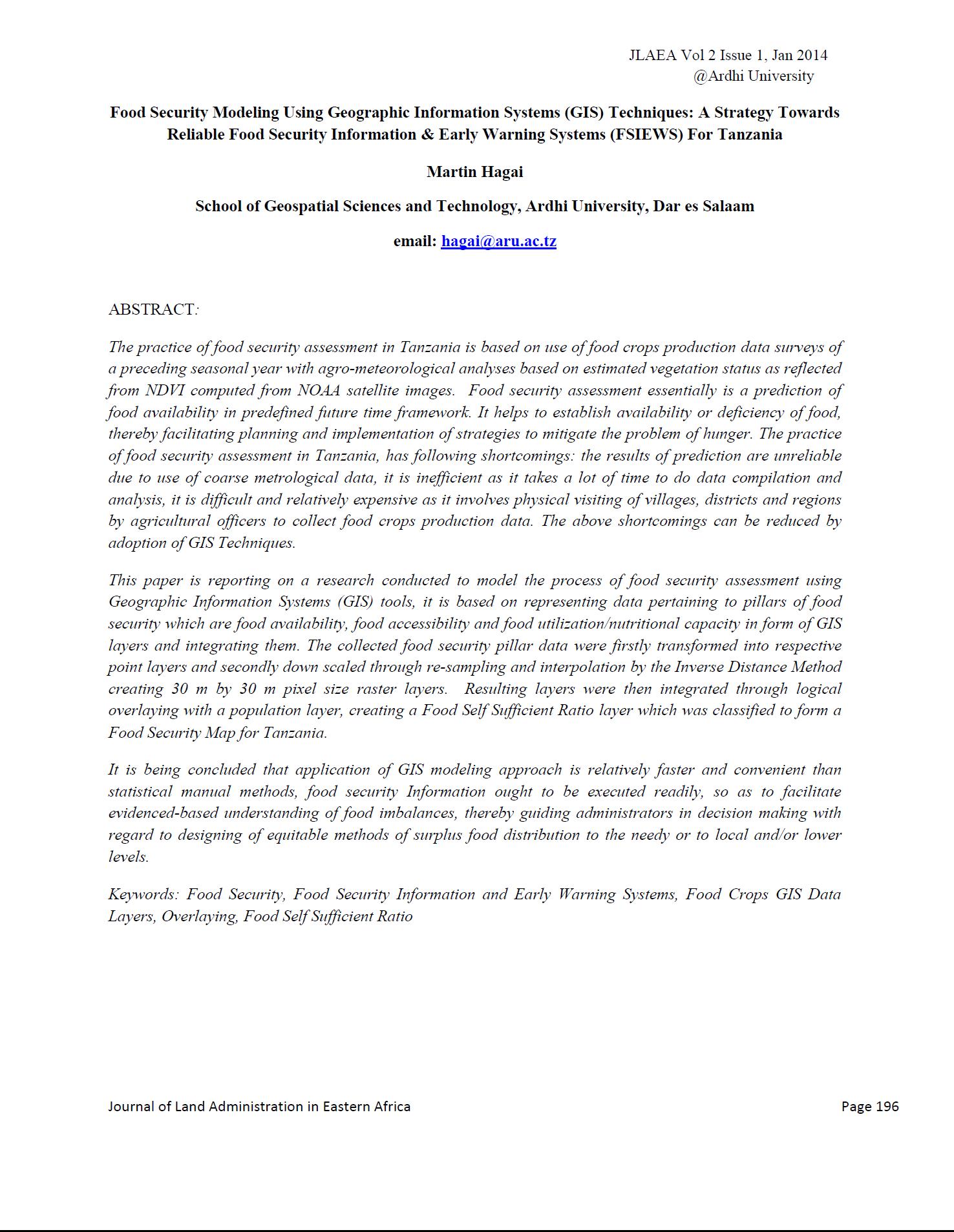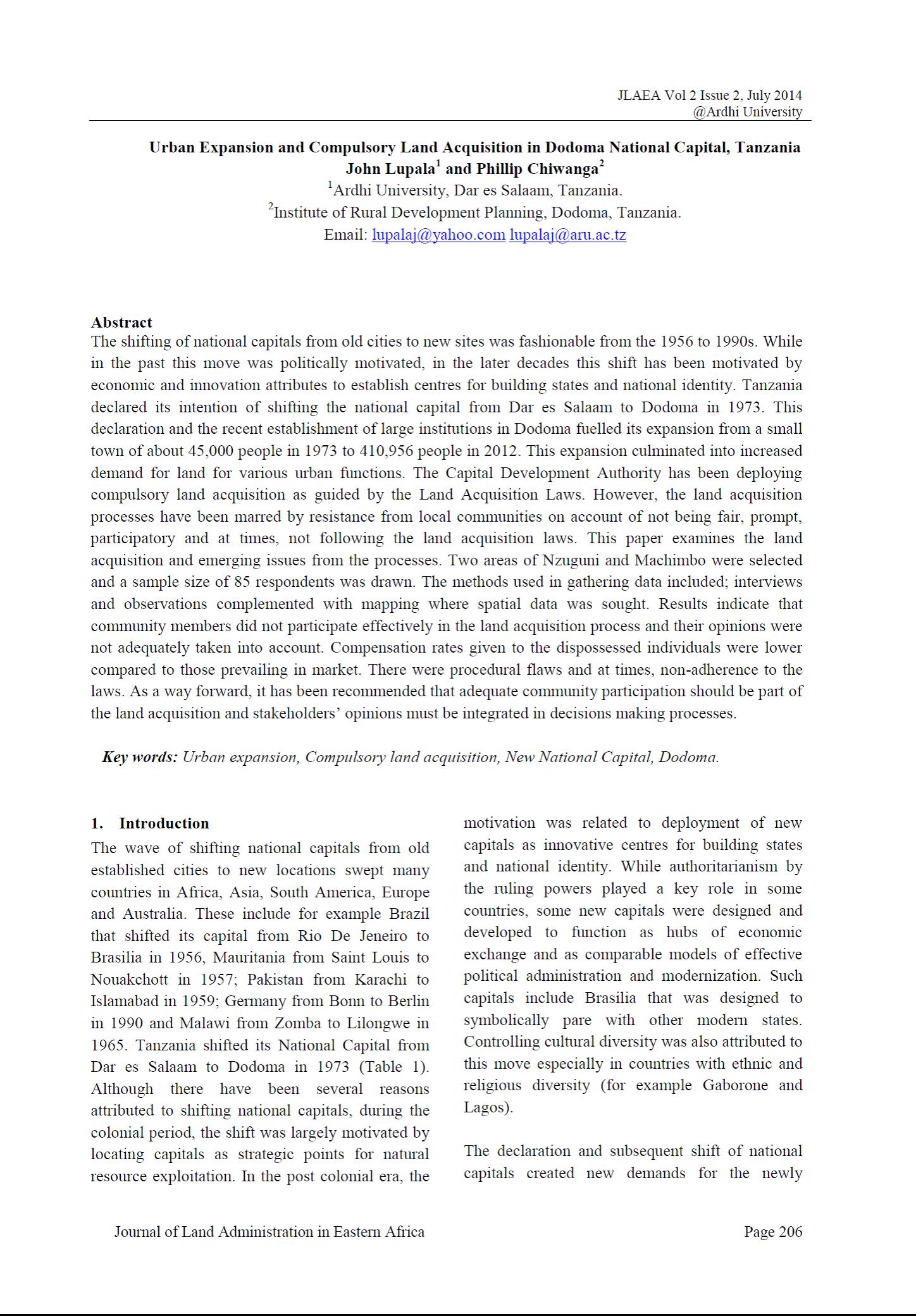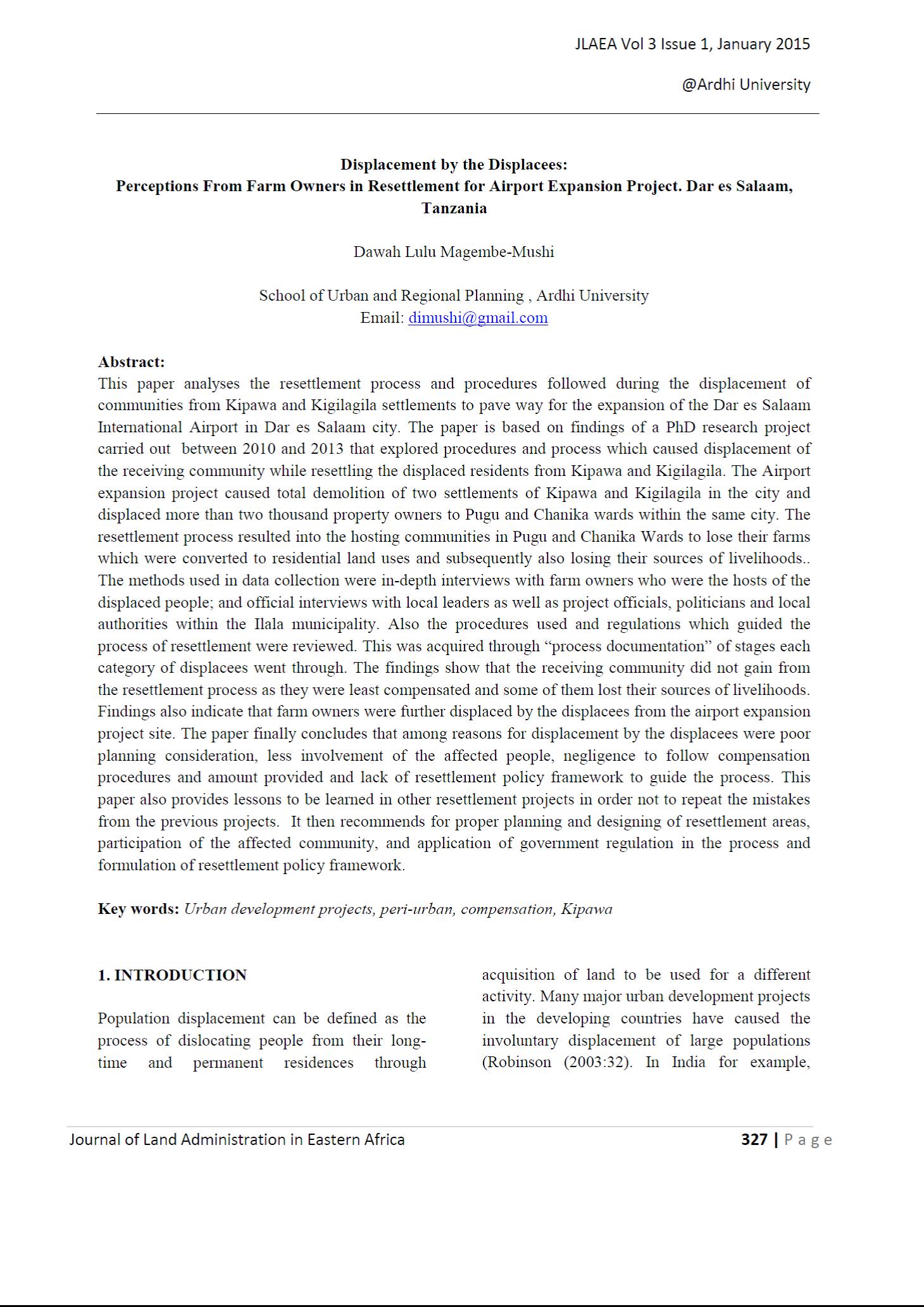趋向负责任土地及其他自然资源 权属治理自愿准则
土地权属及管理处 10. 本讨论文件由粮农组织土地权属及管理处起草,目的是为了征求对负责任 的土地和其他自然资源权属治理自愿准则的看法和意见。衰弱的权属治理可导 致生命和生计损失,阻碍投资和经济的全面增长,并妨碍自然资源的可持续利 用。相比之下
Добросовестное руководство в системе землевладения и управления земельными ресурсами
Исследования ФАО по вопросам землевладения представляют собой краткое изложение зачастую сложной и полемичной темы землевладения, особенно применительно к продовольственной обеспеченности, борьбе с нищетой и развитию сельских районов. Данные исследования не претендуют на исчерпывающий характер, а скорее отражают случаи "добросовестного руководства" в определенных сферах землевладения и управления земельными ресурсами, выявленные ФАО и ее многочисленными международными сотрудничающими партнерами.
Responsible Governance of Land Tenure: an essential factor for the realization of the Right to Food
Land Tenure Working Paper 15. This publication brings to light the existing linkages between land tenure and the realization of the right to food. It points out that responsible governance of land requires the adoption of human rights-based approach in order to develop coherent and long term solutions to improve people’s livelihoods. The document presents the legal implications of the right to food at national level and provides a series of examples on the implementation of human rights principles and obligations into land tenure systems, policies, and institutional frameworks.
Bonne gouvernance des régimes fonciers et de l’administration des terres
Les Etudes sur les régimes fonciers réalisées par la FAO sont des exposés concis explorant le domaine, souvent complexe et sujet à controverse, du régime foncier, en particulier dans ses interactions avec la sécurité alimentaire, la réduction de la pauvreté et le développement rural. Ces études ne prétendent pas à l’exhaustivité, mais reflètent plutôt les «bonnes pratiques» identifiées par la FAO et ses nombreux collaborateurs internationaux dans le contexte spécifique d’un aspect donné des régimes fonciers et de leur administration.
Land Administration in Eastern Africa: Quest for Identity
This paper looks at Valuation as an important component of land administration that has outgrown the land sector gradually becoming an independent professional discipline much to the chagrin of its hosts – the land administration. Valuation as a profession originated in the actual sale transactions in medieval Europe where buyers relied on experienced interventionists in the land/real estate market to advise on the size and buying price of real properties. Its eventual introduction to university curriculum has been diverse amongst different regions and at varying momentum.
120 Years of Surveys and Mapping in Tanzania (1893 – 2013)
The history of surveys and mapping in Tanzania has been influenced by two European cultures through its colonization; first by the German and then by the British. During the German Administration, surveys and mapping activities were carried out by the Department of Surveys and Agriculture from 1893 to 1914. When the British took over the mandate for the territory after World War I, the also used the “old” German maps until when they when they started the surveys to produce other topographic maps from 1946. In 1961, the Surveys and Mapping Division was created.
Food Security Modeling Using Geographic Information Systems (GIS) Techniques
The practice of food security assessment in Tanzania is based on use of food crops production data surveys of a preceding seasonal year with agro-meteorological analyses based on estimated vegetation status as reflected from NDVI computed from NOAA satellite images. Food security assessment essentially is a prediction of food availability in predefined future time framework. It helps to establish availability or deficiency of food, thereby facilitating planning and implementation of strategies to mitigate the problem of hunger.
Urban Expansion and Compulsory Land Acquisition in Dodoma National Capital, Tanzania
The shifting of national capitals from old cities to new sites was fashionable from the 1956 to 1990s. While in the past this move was politically motivated, in the later decades this shift has been motivated by economic and innovation attributes to establish centres for building states and national identity. Tanzania declared its intention of shifting the national capital from Dar es Salaam to Dodoma in 1973. This declaration and the recent establishment of large institutions in Dodoma fuelled its expansion from a small town of about 45,000 people in 1973 to 410,956 people in 2012.
Access to the Land Tenure Administration System in Rwanda and the Impacts of the System on Ordinary Citizens
Over the last decade, the Government of Rwanda (GoR) has introduced several land reforms through formulation and enactment of enabling legal framework, establishment of land administration institutions and implementation of national land tenure regularization. Further, the Land Act of 2013 stipulated that all landholders must formally register their land. To support registration compliance, the GoR decentralized the Land Administration System (LAS) to all District Land Bureaus (DLBs).
Displacement by the Displacees
This paper analyses the resettlement process and procedures followed during the displacement of communities from Kipawa and Kigilagila settlements to pave way for the expansion of the Dar es Salaam International Airport in Dar es Salaam city. The paper is based on findings of a PhD research project carried out between 2010 and 2013 that explored procedures and process which caused displacement of the receiving community while resettling the displaced residents from Kipawa and Kigilagila.
Displacement by the Displacees
This paper analyses the resettlement process and procedures followed during the displacement of communities from Kipawa and Kigilagila settlements to pave way for the expansion of the Dar es Salaam International Airport in Dar es Salaam city. The paper is based on findings of a PhD research project carried out between 2010 and 2013 that explored procedures and process which caused displacement of the receiving community while resettling the displaced residents from Kipawa and Kigilagila.

